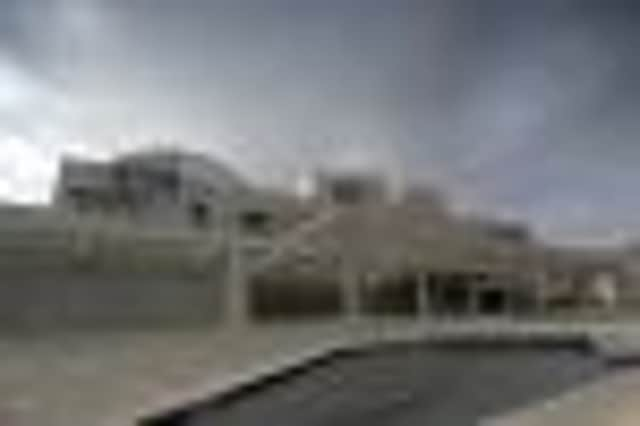Leaders: Extended scope of debate is to be welcomed


It was, of course, about the provision of universal benefits, such as free prescriptions, which was begun by Johann Lamont, the leader of Scottish Labour. The two-fold welcome arises because firstly, important though the constitution is, it is merely a framework for delivery of public services, and secondly, it shows signs of thinking beyond mere reactive opposition from one of Scotland’s main political parties.
Indeed, the questions she raised are valid whether Scotland is independent or not. The SNP sometimes gives the impression that independence is a magic cure-all that will abolish poverty, unemployment, disease and want. Of course it will not do that but it is hard to find a nationalist spokesman who will admit that.
Advertisement
Hide AdAdvertisement
Hide AdBut leaving aside, as Ms Lamont did in her speech, the constitutional aspects, the questions she raised are well worth debating at some length. The central issue is whether it is effective or beneficial to society for increasingly scarce public resources to be provided to those who could afford to pay for what those resources are providing.


Different arguments apply in each case. Was it really right to abolish prescription charges for all when, in reality, anyone who was so poor as to be in receipt of welfare benefits or suffered from a chronic condition (which with several other categories such as pregnant women constituted a majority of the population) paid no charges anyway? Could this not be argued to be a straight transfer of public resources to the better off which, if applied in some other way to poverty alleviation or employment creation, would have been a better use of taxpayers’ money?
The freeze on council tax is of much greater benefit to low income-earners than high ones simply because it is a higher proportion of household income. But then the effects of this freeze, if it results in reductions in services, has greater impact on poorer people. The better off, apart from bin collection, local roads, and recreation facilities, tend not to use council-provided services. But on the other side, the freeze will have given richer households more disposable incomes which, in turn, may help to sustain retail spending.
Of course, it is possible to be cynical about Ms Lamont’s motives in raising these questions. Perhaps, by raising the issue of taking from the rich to give to the poor (and implying that the SNP has done the opposite), she is trying to make Scottish Labour more attractive to those voters who deserted the party for the nationalists at the last Scottish parliamentary election.
But until there is evidence that this is her primary purpose, it should be recognised that she had raised significant questions with complex granularity that deserve much greater discussion.
Off the car insurance roundabout
Once a year, it can be pretty much guaranteed, car drivers will open a letter which makes them groan. The cost of their car insurance, they are annually told, has had to go up and probably by a lot more than inflation. The rest of the text will attempt comforting reassurance about the remarkable value this represents.
Few believe it, least of all the folk at the Office of Fair Trading (OFT), which is now to investigate this business.
Its concerns are with some
specific aspects of this trade, namely what happens when a driver involved in an accident which is somebody else’s fault has to hire a replacement vehicle while their own is repaired. The OFT believes from its initial inquiries that rental and repair firms charge a high rate for this business.
Advertisement
Hide AdAdvertisement
Hide AdBecause no-fault drivers do not pay these bills, they may not care too much.
But they ought to, because when the bill is paid, insurers often add a fee paid by the at-fault driver’s insurer which boosts the no-fault insurer’s profits but adds costs to the at-fault insurer who in turn recovers these costs by charging higher premiums. In the end, it appears the net effect is to increase premium costs and insurance company profits and yet no additional or improved service has been provided.
These fees are not minor. In the case of one major insurance company, they are reckoned to account for about 30 per cent of profits.
As this is a practice which has been ratcheting up for several years, the OFT inquiry is overdue. And if it results in an end to such fees and consequently a reduction in insurance premiums, it will be a job well done.